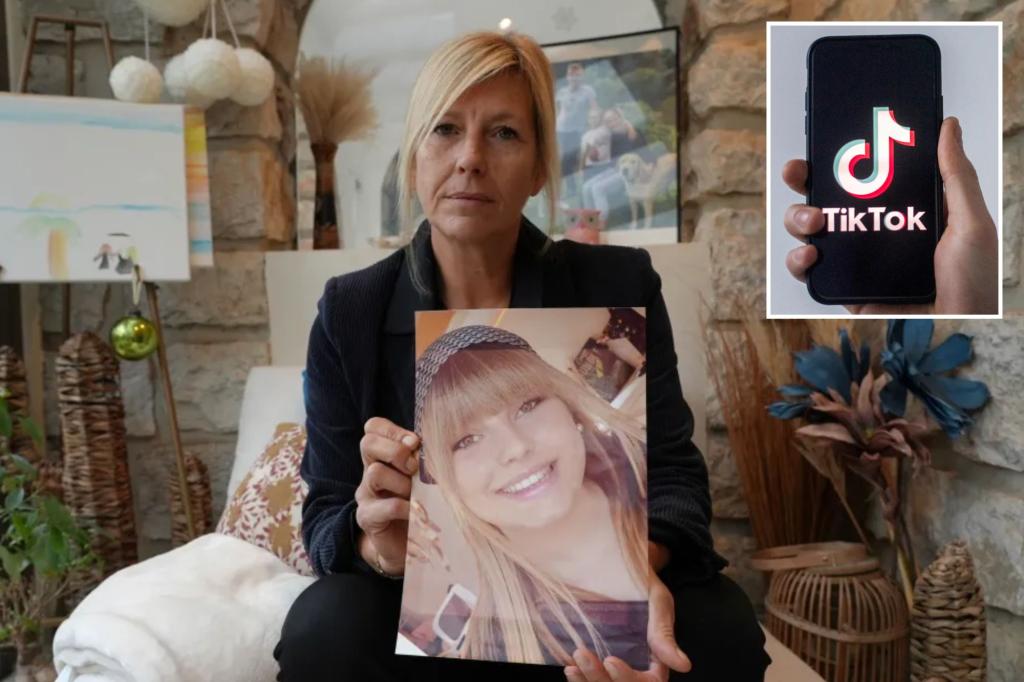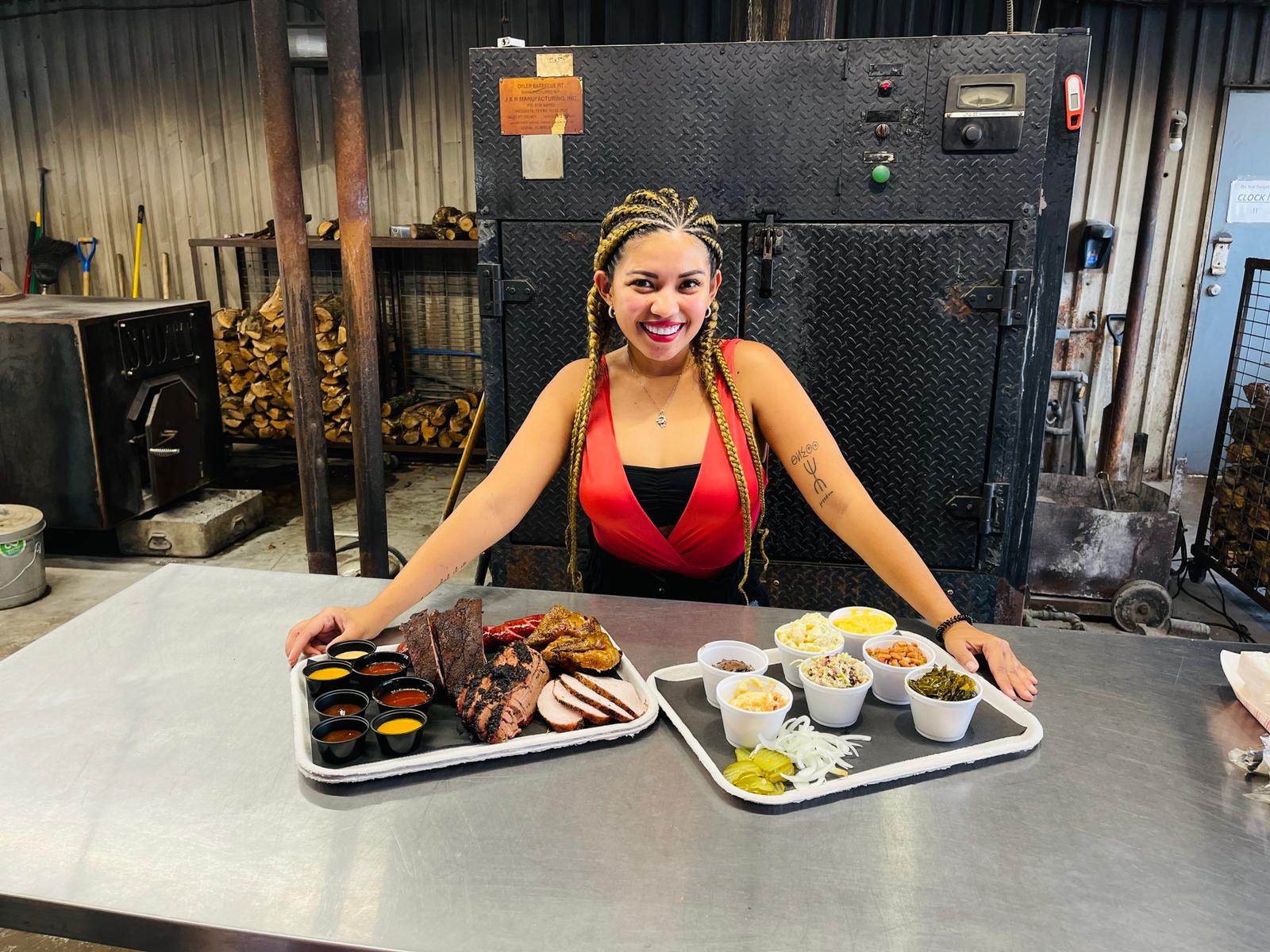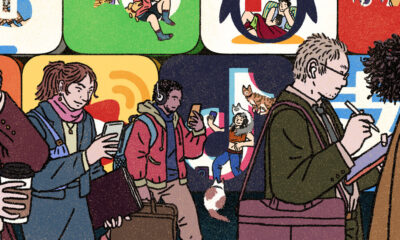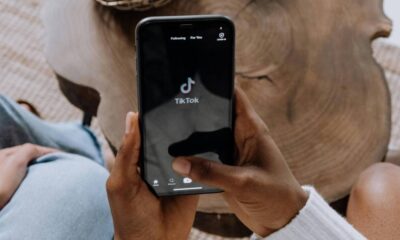Breaking News
France parents sue TikTok claim harmful content led to teen suicides

Stephanie Mistre experienced a devastating loss when she found her 15-year-old daughter, Marie, lifeless in her bedroom three years ago, having died by suicide.
“I went from light to darkness in a fraction of a second,” Mistre recalled the day in September 2021 that marked the beginning of her battle against TikTok, the Chinese-owned video app she holds responsible for influencing her daughter towards despair.
After investigating her daughter’s phone following her death, Mistre uncovered videos promoting suicide methods, tutorials, and comments encouraging users to go beyond mere suicide attempts.
She claimed that TikTok’s algorithm consistently pushed such content to her daughter.
“It was brainwashing,” Mistre, who resides in Cassis near Marseille in the south of France, said. “They normalized depression and self-harm, turning it into a twisted sense of belonging.”
Currently, Mistre and six other families are suing TikTok France, alleging that the platform failed to moderate harmful content and exposed children to life-threatening material.
Among the seven families, two have tragically lost a child.
When questioned about the lawsuit, TikTok stated that its guidelines prohibit the promotion of suicide and that it employs 40,000 trust and safety professionals globally, including hundreds of French-speaking moderators, to remove dangerous posts.
The company also mentioned that it directs users who search for suicide-related videos to mental health services.
Prior to her suicide, Marie Le Tiec created several videos explaining her decision, citing various challenges in her life, and quoting lyrics from a song by the emo rap group Suicideboys, who are popular on TikTok.
Her mother also alleged that her daughter was subjected to repeated bullying and harassment at school and online.
In addition to the lawsuit, the 51-year-old mother and her husband have filed a complaint against five of Marie’s classmates and her former high school.
Above all, Mistre blames TikTok, stating that giving the app “to an empathetic and sensitive teenager who cannot differentiate between what is real and what is not is like a ticking bomb.”
Grégoire Borst, a professor of psychology and cognitive neuroscience at Paris-Cité University, mentioned that scientists have not definitively established a link between social media and mental health issues or psychological harm.
“It’s very difficult to prove direct cause and effect in this area,” Borst said, referencing a prominent peer-reviewed study that attributed only 0.4% of teenagers’ well-being differences to social media use.
Borst also noted that current studies do not suggest that TikTok is more harmful than other rival apps like Snapchat, X, Facebook, or Instagram.
While most teenagers use social media without significant harm, Borst emphasized that the real risks lie with those who are already facing challenges such as bullying or family instability.
“When teenagers already have low self-esteem and spend time exposed to distorted images or harmful social comparisons, it can exacerbate their mental state,” Borst said.
Lawyer Laure Boutron-Marmion, who represents the seven families suing TikTok, stated that their case is supported by extensive evidence. She argued that the company can no longer evade responsibility by claiming they do not create the content.
The lawsuit alleges that TikTok’s algorithm is designed to ensnare vulnerable users in cycles of despair for profit and seeks compensation for the families.
“Their strategy is insidious,” Mistre said. “They lure children with depressive content to keep them on the platform, turning them into lucrative re-engagement products.”
Boutron-Marmion pointed out that TikTok’s Chinese version, Douyin, has much stricter content controls for young users, including a mandatory “youth mode” for users under 14 that limits screen time to 40 minutes a day and provides only approved content.
“This shows that they can moderate content when they choose to,” Boutron-Marmion said. “The absence of these safeguards here speaks volumes.”
A report commissioned by French President Emmanuel Macron titled “Children and Screens,” in which Borst participated, concluded that certain algorithmic features should be considered addictive and banned from any app in France.
The report also recommended restricting social media access for minors under 15 in France.
However, neither of these measures has been implemented.
TikTok, which faced the threat of being banned in the US until President Donald Trump lifted the ban, has faced scrutiny on a global scale.
In the US, parents have taken similar legal actions. One lawsuit in Los Angeles County accuses Meta and its platforms Instagram and Facebook, as well as Snapchat and TikTok, of creating defective products that lead to serious injuries.
The lawsuit includes three teenagers who died by suicide.
In another complaint, two tribal nations have accused major social media companies, including YouTube owner Alphabet, of contributing to high suicide rates among Native youths.
Meta CEO Mark Zuckerberg issued an apology to parents who lost children while testifying in the US Senate last year.
In December, Australia implemented a groundbreaking law that prohibits social media accounts for children under 16.
In France, Boutron-Marmion anticipates that TikTok Limited Technologies, the European Union subsidiary of ByteDance – the Chinese company that owns TikTok – will respond to the allegations in the first quarter of 2025. Subsequently, authorities will determine whether and when a trial will proceed.
When contacted by The Associated Press, TikTok stated that it had not been informed about the French lawsuit filed in November. Boutron-Marmion explained that it could take several months for the French justice system to process the complaint and for Irish authorities – home to TikTok’s European headquarters – to formally notify the company.
Instead, a TikTok spokesperson emphasized the company guidelines that prohibit content promoting suicide or self-harm.
Critics argue that TikTok’s claims of robust moderation are insufficient.
Imran Ahmed, the CEO of the Center for Countering Digital Hate, dismissed TikTok’s assertion that over 98.8% of harmful videos were flagged and removed between April and June.
According to Ahmed, social media platforms claim that users can evade detection by using ambiguous language or allusions that algorithms struggle to identify when asked about the limitations of their moderation efforts.
The term “algospeak” has been coined to describe techniques such as using zebra or armadillo emojis to discuss self-harm, or the Swiss flag emoji as an allusion to suicide.
Such coded language “is not particularly sophisticated,” Ahmed stated. “The only reason TikTok cannot identify them when independent researchers, journalists, and others can is because they are not looking hard enough,” he added.
Ahmed’s organization conducted a study in 2022 simulating the experience of a 13-year-old girl on TikTok.
“Within 2.5 minutes, the accounts were served self-harm content,” Ahmed said. “By eight minutes, they saw eating disorder content. On average, every 39 seconds, the algorithm pushed harmful material.”
The algorithm “knows that eating disorder and self-harm content is especially addictive” for young girls.
For Mistre, the fight is deeply personal. Sitting in her daughter’s room, which she has kept unchanged for the past three years, she emphasized the importance of parents being aware of the dangers of social media.
If she had known about the content her daughter was exposed to, she would never have allowed her on TikTok, she stated. Her voice broke as she described Marie as a “sunny, funny” teenager with aspirations of becoming a lawyer.
“In memory of Marie, I will fight for as long as I have the strength,” Mistre pledged. “Parents need to know the truth. We must hold these platforms accountable and demand transparency.”
If you are struggling with suicidal thoughts or experiencing a mental health crisis in New York City, you can call 1-888-NYC-WELL for free and confidential crisis counseling. If you are outside the five boroughs, you can dial the 24/7 National Suicide Prevention hotline at 988 or visit SuicidePreventionLifeline.org.
-

 Destination4 months ago
Destination4 months agoSingapore Airlines CEO set to join board of Air India, BA News, BA
-

 Tech News8 months ago
Tech News8 months agoBangladeshi police agents accused of selling citizens’ personal information on Telegram
-

 Motivation8 months ago
Motivation8 months agoThe Top 20 Motivational Instagram Accounts to Follow (2024)
-

 Guides & Tips6 months ago
Guides & Tips6 months agoSatisfy Your Meat and BBQ Cravings While in Texas
-

 Guides & Tips6 months ago
Guides & Tips6 months agoHave Unlimited Korean Food at MANY Unlimited Topokki!
-

 Tech News6 months ago
Tech News6 months agoSoccer team’s drone at center of Paris Olympics spying scandal
-

 Breaking News5 months ago
Breaking News5 months agoCroatia to reintroduce compulsory military draft as regional tensions soar
-

 Toys6 months ago
Toys6 months ago15 Best Magnetic Tile Race Tracks for Kids!
























